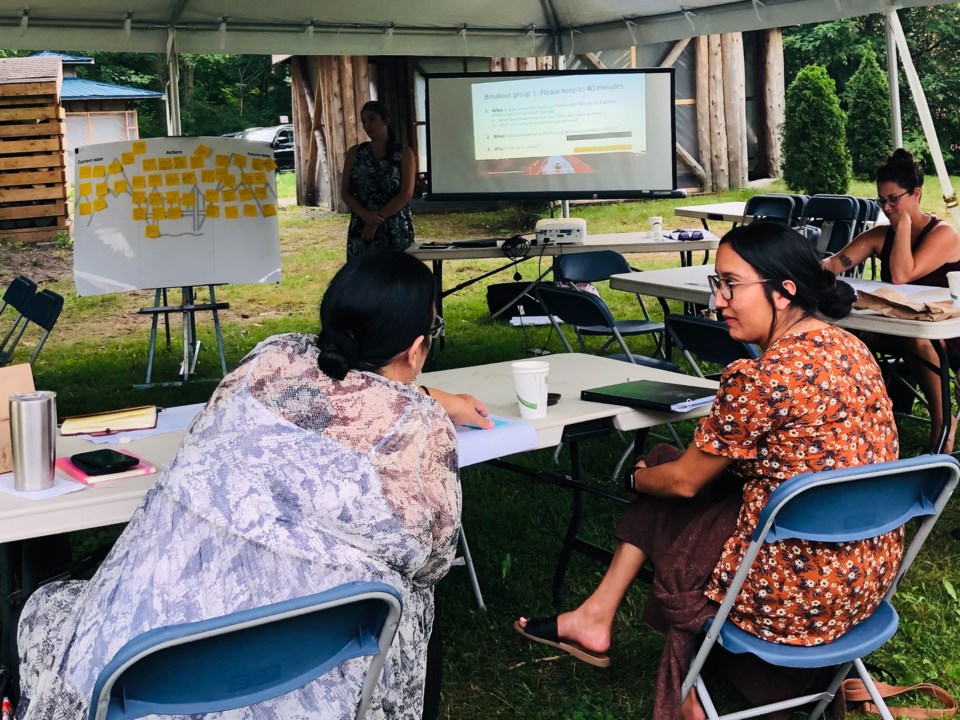Sault Ste. Marie City Council held a vote approving the establishment of the Canada Water Agency Task Force on June 28. This organization is building a pitch to the federal government to have the anticipated country-wide agency located in the Sault.
The Task Force is led by the City and external partners, including Sault College's Natural Environment Coordinator Ryan Namespetra.
One year ago, the federal government announced its plans to establish an agency to serve as a central hub for the management of water in Canada. This includes research, dealing with the effects of climate change, water scarcity, Indigenous/government relations and following international law.
Ottawa is looking for a home for the agency, which it hopes to have finished by 2022.
“I was chosen to join the task force to help by sharing my expertise in freshwater ecosystems,” said Namespetra in an interview with SooToday.
Namespetra teaches at Sault College, with an educational background in the field of the natural environment.
He credits his “role as a coordinator in the School of Natural Environment” as being “helpful in further developing my leadership experience as well as expanding my network within the Natural Environment field and beyond.
“My role on the task force is also directly tied to my position as the Aquatic Studies Professor within the department.
According to the website the task force set up, it is made up of a number of community members with ties to water research or local governance:
- Tom Vair, Deputy Chief Administrative Officer for the City of Sault Ste. Marie
- Rick Van Staveren, Director of Economic Development
- Travis Anderson, Director of Tourism & Community Development
- Kathleen Heymans, Manager of Business Development
- Emily Cormier, Sustainability Coordinator
- Christian Provenzano, Mayor
- Corey Gardi, City Councillor,
- Elaine, Ho-Tassone, Project Coordinator with the Lake Huron Collaborative
- Paula Antunes, Freshwater Researcher and Consultant
The task force is also currently working on a promotional video, which is set to be released in the fall.
Community Discussion
Part of the pitch to the federal government includes consulting with various community members. The task force is in the process of holding four discussion sessions with individuals and organizations.
The first such discussion was hosted by the Sault College Waterfront Adventure Centre in late August. It was open to organizations. The second one also took place in late August in The Arbour at Algoma University. It was open to members of the Indigenous communities in northern Ontario.
Two more sessions will be held: one for youth (ages 15-24) and one for the general community. Their location is yet to be announced.
Video calls are used to facilitate participation in each of the sessions.
“All of those community discussions are going to feed into a what-we-heard report," said Heymans. "That will ultimately help inform the final proposal that the city develops that will go to the federal government.”
She went on to say, “in our proposal, we want to highlight all of the amazing, valuable proposition points that we have… Another important piece of that is our own local water story. Why water is important to our community."
The discussions are organized by Dr. Elaine Ho-Tassone, a researcher at the NORDIK Institute.
Indigenous Input
Local partners along with Environment and Climate Change Canada recognize the importance of Indigenous/government engagement. In his original pitch to the Parliamentary Secretary for the Minister of ECC, Sault MP Terry Sheehan highlighted the support of the Garden River First Nation.
“One of the key pieces of our Indigenous community discussions is the importance of learning through storytelling,” said Heymans.
“Dr. Elaine Ho and I are working collaboratively to discuss how we can integrate a proposal that honours that storytelling piece.”
Water is also historically significant in this part of the world. The river banks of St. Mary’s have been a meeting hub for Indigenous peoples in the region for centuries.
Why Sault Ste. Marie?
The other city that has been seriously bidding to be home of the Canada Water Agency is Regina, Saskatchewan.
The Prairie city was quick to place its bid to Ottawa and is offering collaboration with the University of Regina, First Nations University of Canada and Saskatchewan Polytechnic.
Meanwhile, the Sault can offer joint research with various institutions including the Great Lakes Forestry Centre, Ontario Forest Research Institute as well as trans-national work with Lake Superior State University.
“In Canada, we are lucky to have such an abundance of this valuable resource, which makes us even more responsible for ensuring its protection,” said Ryan Namespetra. Sault Ste. Marie is “at the heart of the upper Great Lakes. From east to west, we are near the midpoint in Canada.”
Heymans noted that “what we wanted to recognize from the beginning is that Canada is a large and diverse country with different freshwater situations in different regions. That’s part of why – while we think Sault Ste. Marie is a perfect fit for a Canada Water Agency – we are also supporters of a regional approach.”
